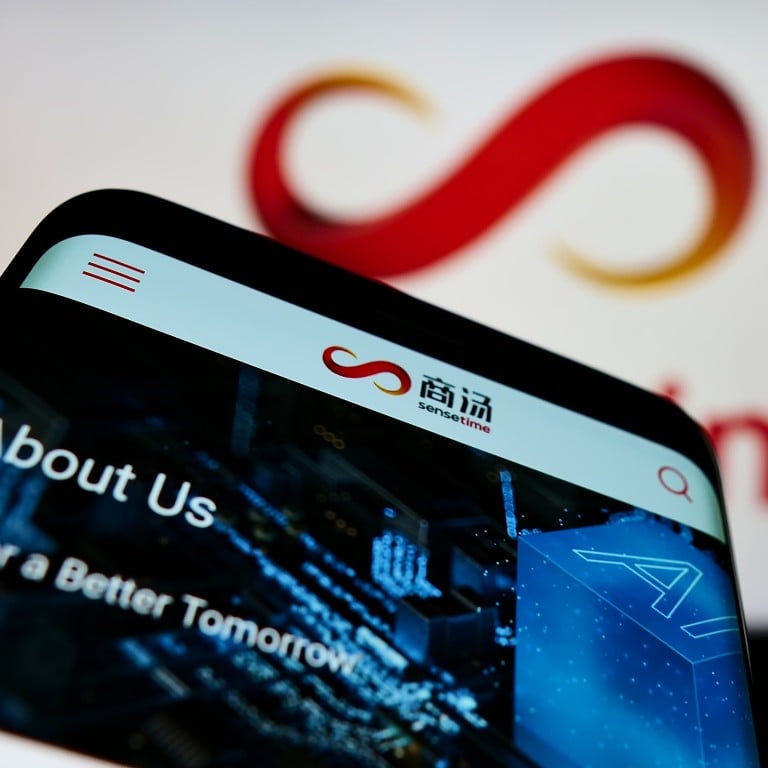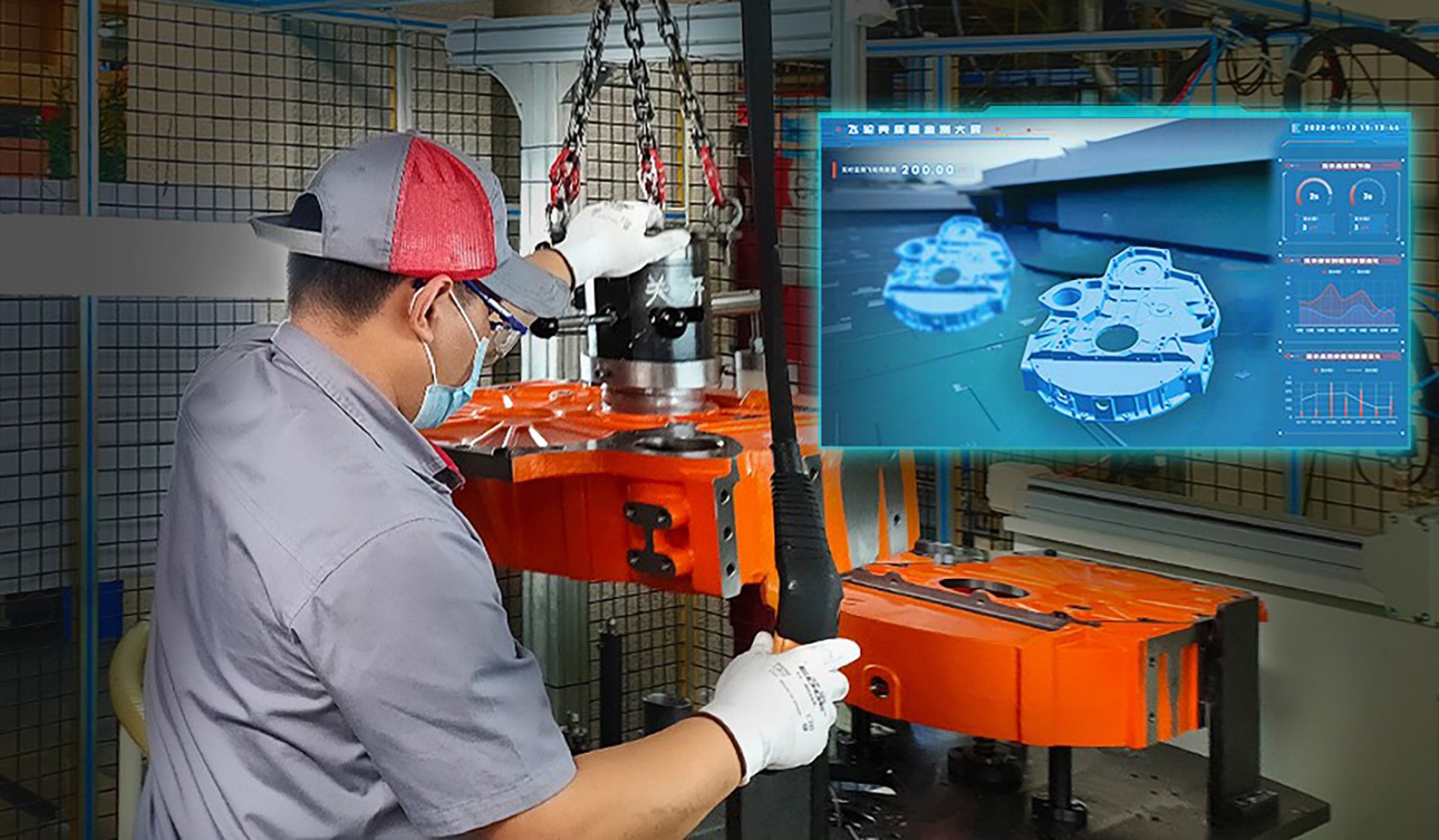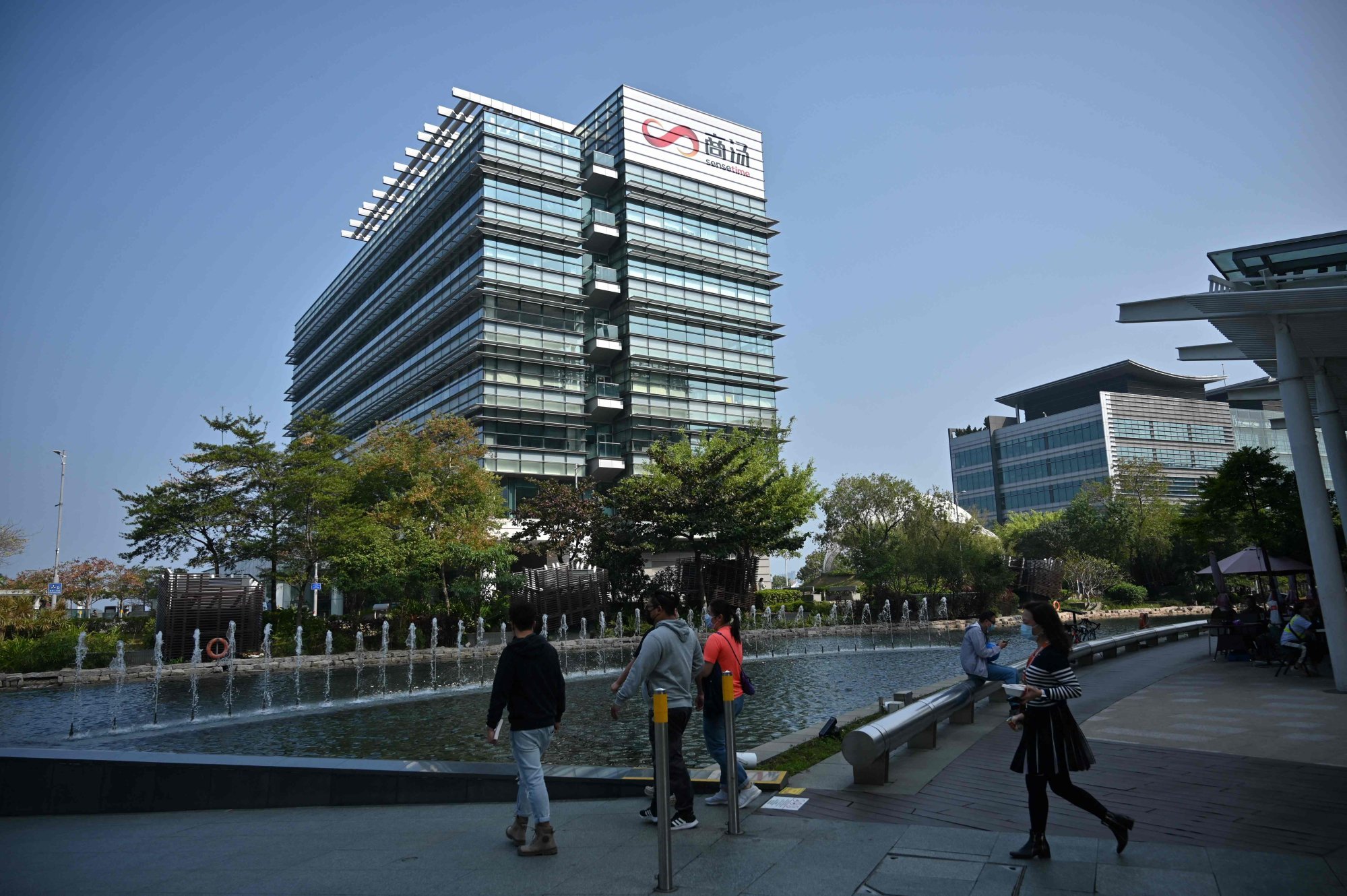Advertisement
Advertisement

Artificial intelligence giant SenseTime moves further beyond facial recognition systems with new initiative in manufacturing sector
- Hong Kong-based SenseTime has launched an AI-enabled automated engine defect detection system, with its SenseSpring platform, for manufacturer Foton Cummins
- That enables SenseTime to compete in China’s nascent automated industry inspection market, which is led by major tech firms Baidu, Huawei and Alibaba
Yaling Jiangin Shanghai
SenseTime, the Hong Kong-based software company that runs the world’s largest artificial intelligence (AI) platform, is moving further beyond facial recognition systems by applying its technology to the car components manufacturing sector.
The company, which went public in Hong Kong last December, said in a statement on Monday that it has launched an AI-enabled automated engine defect detection system with SenseSpring – its proprietary industrial quality inspection training platform – for use by Beijing Foton Cummins Engine Co (Foton Cummins), the world’s leading independent engine manufacturer.
That AI infrastructure, according to SenseTime, enables Foton Cummins to detect surface and assembly defects in key engine components, which frees workers from tedious manual quality inspection work, marking a major milestone in the Beijing-based firm’s adoption of intelligent manufacturing systems.
Foton Cummins is a joint-venture between Beiqi Foton Motor Co and American diesel engine manufacturer Cummins.

The project with Foto Cummins is expected to burnish SenseTime’s credentials in the Fourth Industrial Revolution, also known as Industry 4.0. This represents the automation of traditional manufacturing and upgrading of industrial practices with use of modern smart technology to help firms achieve more efficiency and profitable growth.
That also enables SenseTime to stay competitive against other Chinese tech giants. Baidu, for example, launched its own AI product inspection services in 2017, counting state-owned carmakers such as Shougang Group and FAW Group as clients.
China’s nascent industry inspection market reached US$142 million in 2020, led by Baidu, Huawei Technologies Co, Alibaba Group Holding and AInnovation. Alibaba, an early investor in SenseTime, owns the South China Morning Post.
SenseTime’s latest initiative in manufacturing comes months after the Biden administration imposed economic sanctions on China’s largest AI company over alleged human rights abuses in Xinjiang.

The US Treasury Department had accused SenseTime of developing facial recognition systems “that can determine a target’s ethnicity, with a particular focus on identifying ethnic Uygurs”. SenseTime was added to Washington’s investment blacklist, which blocks Americans from buying shares of the company’s stock.
That controversy and concerns about the US sanctions’ impact, however, was shrugged off by investors, who saw the stock jump more than expected on its trading debut.
Shares of SenseTime were down 2.38 per cent to close at HK$6.55 on Monday.
In August last year, SenseTime said its large AI platform may be used to power the intelligent cockpit and autonomous driving features in as many as 20 million cars over the next several years.
The company, founded by a group of professors at the Chinese University of Hong Kong, has formed partnerships with 30 carmakers, including Japan’s Honda Motor Co, and China’s Great Wall Motors and Chery Automobile.

2
